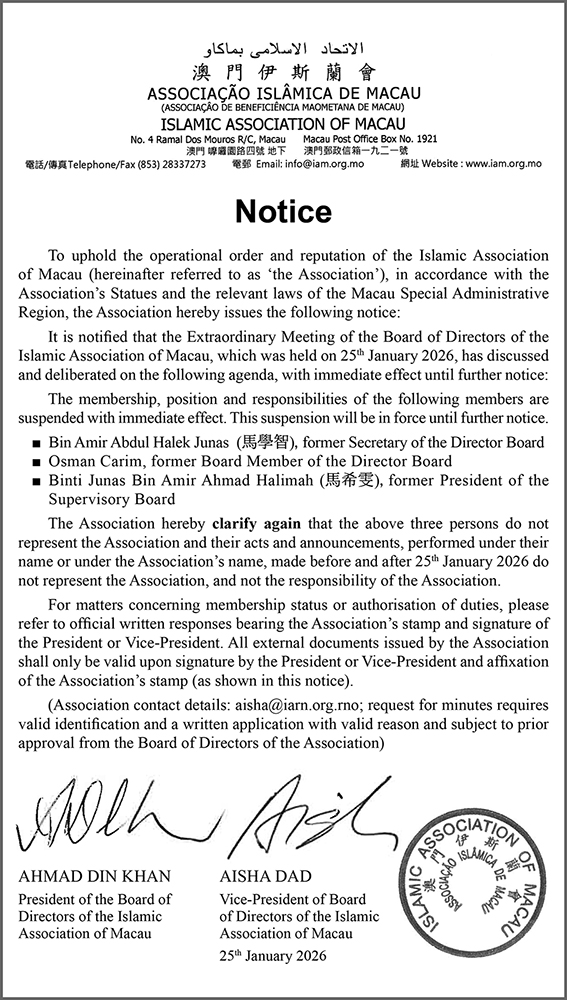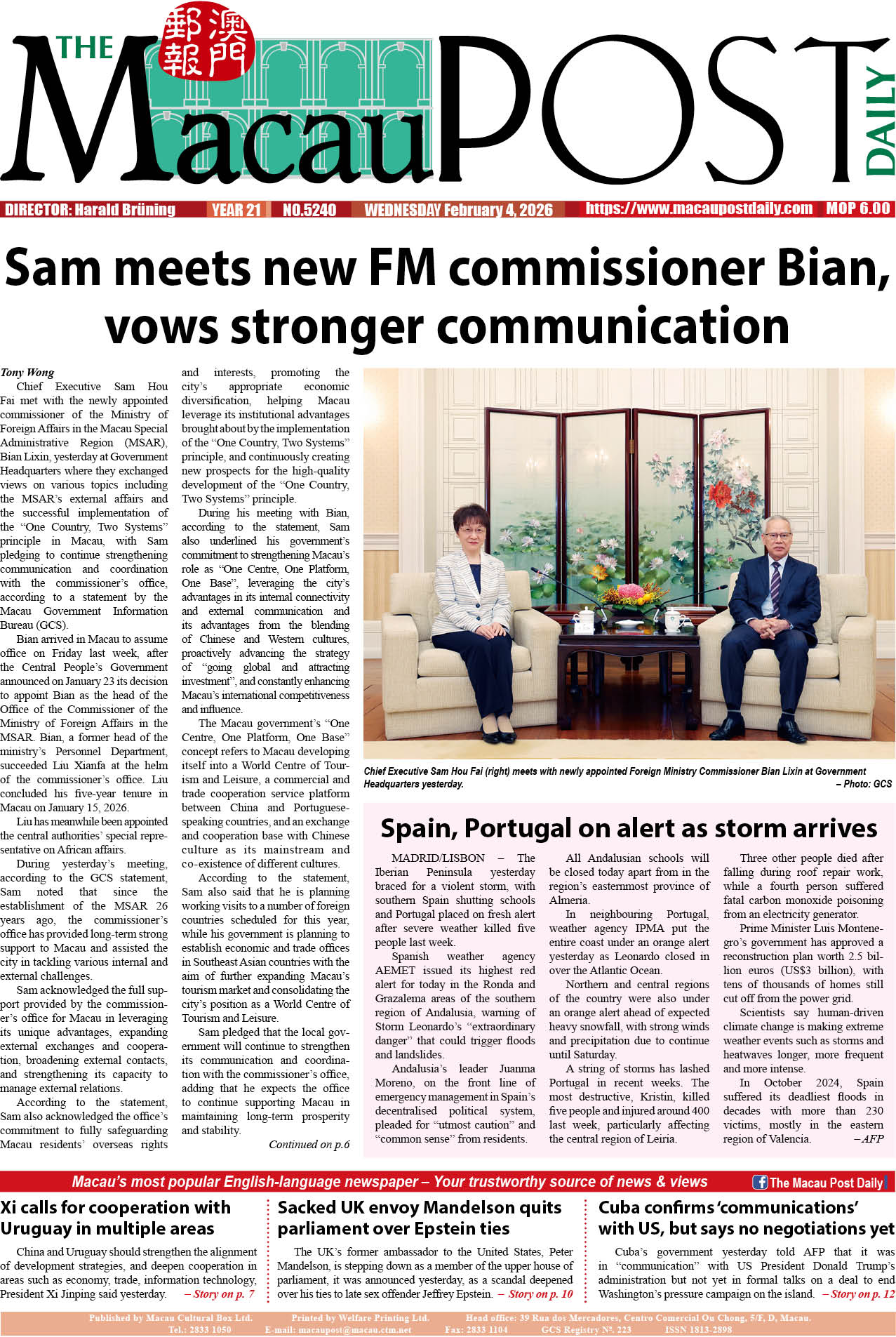In response to the government’s announcement on Sunday about its plan to pedestrianise Rua da Felicidade (“Street of Bliss”, home to Macau’s fabled “ladies of the night” in the past) and several nearby streets – Travessa do Mastro, Travessa do Aterro Novo, Rua do Matapau and Travessa de Hó Lo Quai – starting at the Mid-Autumn Festival on September 29, The Macau Post Daily asked eight people living, working or owning a shop in Rua da Felicidade and Rua do Matapau yesterday about their views on the plan, which ultimately may take effect on a “regular basis”.
Most of the residents operating businesses in the Rua da Felicidade neighbourhood told The Macau Post Daily that they expected increased foot traffic there, while a resident who owns a motorcycle repair shop in Travessa do Mastro expressed concern about his business prospects once the street is closed to vehicular traffic.
According to Sunday’s announcement, the pedestrian zone will open to the public daily between 11 a.m. and 1 a.m., when vehicular traffic will not be allowed in the area.
Views from 5 people working & living in Travessa do Mastro
Talking to The Macau Post Daily yesterday afternoon, the male motorcycle repair shop owner surnamed Ho, who disagreed with the government converting the street into a pedestrian zone on a regular basis, pointed out that “once the street is closed to vehicular traffic daily from 11 a.m., motorbikes will no longer be allowed to enter the area”, adding he worried that the pedestrianisation would have a huge impact on his business, which then could only rely on his regular customers, i.e., after the government’s plan got off the ground, due to the vehicular traffic restrictions which would then be in place.
Ho also raised concern about possible traffic jams in Avenida de Almeida Ribeiro: “There’s a high possibility of traffic congestion in areas surrounding the pedestrian zone once the five streets have been closed to vehicular traffic during workdays when Avenida de Almeida Ribeiro becomes the only route to places such as Nam Van”. Ho also said that the government did not take into account commuters’ rush hours.
Concerning the possible losses to his business, Ho said he hoped that the government would keep in contact to find a possible solution.
Two male employees, who requested anonymity, of a coffee shop in the area said that as their business is focused on takeaways, they did not care about the plan’s possible pros and cons. The duo also said that most tourists buy their shop’s products based on its brand name and, therefore, they are searching for its location every time in advance.
The two employees revealed that apart from the coffee shop their boss has a plan to run also a food stall in the future pedestrian zone.
Two female residents surnamed Che and Fok expressed different opinions about the government’s pedestrianisation project, with one saying that she was looking forward to the increasing foot traffic in the area, with the other saying that she was worried about the inconvenience to vehicular traffic caused by the road closures during their working hours.
Views from 3 business operators in Rua da Felicidade
Meanwhile, two male shop owners, one surnamed Yu and the other called Danny, urged the government to keep improving their pedestrianisation project, adding they were worried about their businesses being affected by stalls when daytime and night markets are set up in the area.
In order to better showcase the area’s historic culture to tourists, Yu said, the government should put more emphasis on renovating the buildings there. Yu pointed out: “My shop is being eaten up by termites, and the exterior walls are in disrepair”, adding that even though he has written to the government many times about the damage, he has yet to receive assistance from the government to repair it.
In addition, according to Yu, based on his observation, almost half of the shops there have been closed for a long time, even after the three-year-long COVID-19 pandemic.
According to Yu, whose shop is selling Portuguese-style food souvenirs and beverages, the foot traffic in the area has slightly increased since the pandemic, but his business has yet to increase “much”.
Danny, who owns a catering outlet, said that along with the increasing number of people in the area, he worried that the crowds would disrupt residents’ tranquil life there.
Expecting the foot traffic to increase in the street and thus benefit his business, Loi, who owns a mini-mart in the street, said he agreed with the government’s plan to convert the street into a pedestrian zone.

Buyers queue at a herbal tea stall in Travessa do Aterro Novo, which will be closed to vehicular traffic from September 29 as part of the pedestrianisation of the Rua da Felicidade (“Street of Bliss”) neighbourhood. – Photo: Yuki Lei








